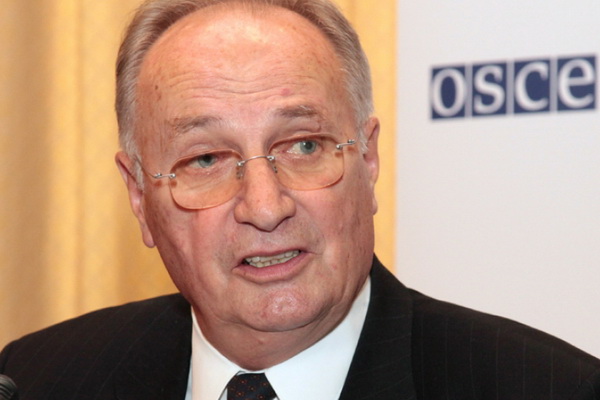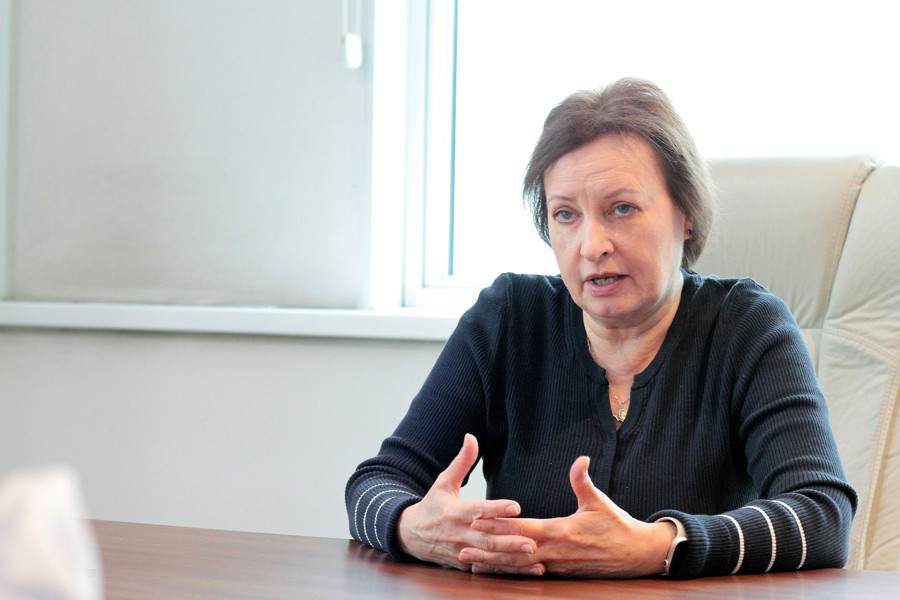Head of the OSCE/ODIHR Election Observation Mission Boris FRLEC:
WE ARE SURPRISED THAT THE ELECTION CAMPAIGN IN KAZAKHSTAN IS VERY QUIET

The OSCE /ODIHR Election Observation Mission published an interim report on the parliamentary election campaign in Kazakhstan. Head of the Mission Boris FRLEC told Interfax-Kazakhstan in an interview about the conclusions and recommendations contained in the report.
- Mr. Frlec, will you please tell us about the OSCE/ODIHR Election Observation Mission in Kazakhstan.
- There are 12 experts in our core team representing 10 different countries, and each expert covers the main aspects of the electoral process. It means that we have the experts for political issues, legal matters, and electoral system. There is a person who is responsible for the media, and some other experts covering human rights issues.
We opened the Mission on February 17. We were later joined by 28 long-term observers who were sent to 14 locations in the country. In the next days, we are expecting more than 200 short-term observers who will be also joining the long-term observers in different locations in the country. We will be also joined by parliamentary delegations, this is the Parliamentary Assembly of OSCE and the Parliamentary Assembly of the Council of Europe. So, altogether there will be about 350 observers.
- You said earlier at a press conference in February that about 400 short-term observers were expected to come. Why has the number changed?
- The answer is simple: that was the decision of the OSCE participating states. We sent them a request asking to send 400 short-term observers to Kazakhstan, but they only sent 216 people. Plus, there will be a number of observers from the diplomatic missions in Kazakhstan, which will make a total of about 230 observes. The work of the short-term observers is paid by the countries that send them, but not by the ODIHR.
- During the previous parliamentary elections in Kazakhstan, the OSCE/ODIHR Election Observation Mission, unlike other observers, made a very negative report about the election process. The Kazakhstani officials did not take the criticism well. However, the Kazakhstan is still open for the OSCE observers. We understand that the OSCE standards have not changed since then, but have you changed the tactics of observation?
- First of all, we did not change our way of observing elections and the fact is that we were invited to this country by the Ministry of Foreign Affairs for a full-fledged mission; and the atmosphere at all meetings we attend, either high level or lower levels, is hospitable, open and very cooperative. We are actually impressed with this very open attitude. So we can have access to any information we need. Our mandate is to find out whether the electoral process complies with the legislation of Kazakhstan, and with the international standards that were set by the OSCE. As you know, Kazakhstan is a member of this organization.
Concerning your question, I would not say that the report was negative, for it was prepared by professionals who didn’t have any negative intention. Our goal is to prepare an objective and impartial report. We do not have any right to interfere in the election process; we are like a mirror reflecting an objective picture of the election process. It is no use to break the mirror if you don't like the picture that you see in it.
-There is an opinion that some countries use the OSCE Observation Missions as a tool to put pressure on other countries. Also, they say that the observers have “a pre-written report” that they just announce after elections.
- We are well aware of such opinions. ODIHR has a certain methodology that is always applied in the same manner. The observers in our team come from 18 different countries. We have never met before, and as I mentioned earlier we are mandated to find out if the election process in this country complies with the set rules of OSCE. The only assessment that is done before secondment of observation missions is to decide if it should be full observation or limited observation. However, the observation should be always professional and objective.
- Do you think there have been any positive changes in Kazakhstan since the previous elections? Did the republic follow the recommendations?
-Over the last few years, as I understand, the election law saw changes only in some of its sections but not in the very critical sections. Earlier we recommended that some of the restrictive provisions including those that are related to the right to vote and the freedom of assembly and expression should be changed. But this hasn’t happened.
However, there have been positive moments. For instance, president Nazarbayev announced five institutional reforms and the program 100 Steps. Also, the Central Election Commission has said they are preparing amendments to the election law. Unfortunately, these amendments will not be considered until after the elections. However the positive thing is that they will eventually be adopted in compliance with the international standards, the OSCE standards and conventions on human rights. We are also pleased with the fact that the authorities intend to invite as many foreign and international observers as possible.
- What other recommendations does Kazakhstan still need to follow?
- As I have already mentioned, this is the right to vote and to be elected. Now this right is limited only to the party members. This is also the freedom of assembly and the freedom of expression. Yesterday the European Parliament published a resolution regarding the freedom of expression in Kazakhstan and in my opinion this document is worth reading.
The Venice Comission says that at least one chamber of the parliament should be elected directly. This is not the case with the Majilis, where 98 seats are elected from party lists and nine are appointed by the Assembly of the People of Kazakhstan. But again this is the law in Kazakhstan. I do believe that the election process will run exactly according to the existing law. We expect that hope that the reforms which were announced earlier will be implemented after the elections.
- What is your opinion about the opposition in Kazakhstan? What are their chances to get into parliament?
- At this particular stage of observation we do not give any assessments. I do believe that the options are open. They have the opportunity to run, nobody is actually blocking them. They have the full opportunity to campaign. But some parties do not use it.
We are actually surprised that the campaign is quiet. However, it is always the question of money. Some of the parties do not have actually means to campaign in a more intensive manner and some of them just use social networks.
This particular election campaign is actually very quiet. Still they use different techniques, for example door to door campaigning, which you cannot actually feel, and public posters, which are expensive.
There are differences between these parties. Nur Otan is a very strong and extremely well-organized party, they can afford more than, for instance, Birlik or some of these small parties that are very limited in their activity.
- The Central Election Commission mentioned earlier that they might organize televised debates between the parties. Do you think it would be an effective campaign tool?
- Debates, of course, could be very effective provided that the programs announced by the parties are quite different. In this particular case, the differences in the programs are extremely small. Some small parties have found their niches and propose different directions, but anyway they all support Nur Otan’s program. For instance, Ak Zhol is a business-oriented party, the Auyl Party is focused on agriculture and the Communist People’s Party of Kazakhstan is more concerned about social rights. But all these aspects are related, in one way or another, to Nur Otan’s program. I do not think any vivid discussion could be possible since they all agree.
- Thank you for your time!
March, 2016
© 2026 Interfax-Kazakhstan news agency
Copying and use of these materials without reference to the source is prohibited
Archive





